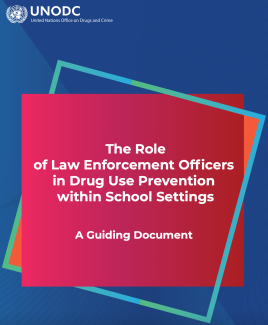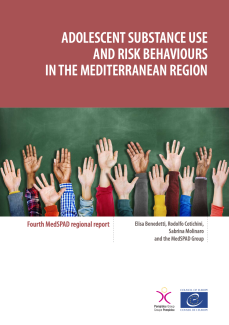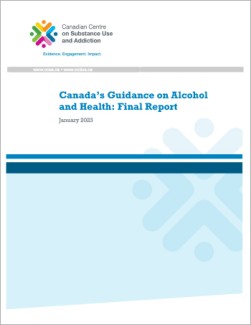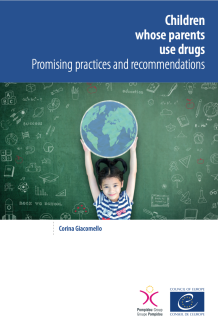Search
Needs assessment for implementation of addiction science courses in Nigerian tertiary educational institutions: prospects and challenges
Regional Evidence-Based Prevention Hub: A proposal to close quality gaps in prevention initiatives in the region
Brief Interventions to Selective and Indicative Prevention in Mental Health and Addictions
School Psychoactive Substance Use Prevention Intervention Quality Model
Developing and implementing a Drug reduce University Diploma for health practitioners in Uruguay: challenges and future directions
When, how, and why to adapt a preventive intervention: insights from the implementation science
Bridging the Gap: The Impact of Implementation Strategies for Universal Drug Use Prevention on Student Outcomes in Low-Income Areas
Enhancing prevention system in Greece: Lessons learnt and challenges
The Implementation of Two Evidence-Based Media-Based Prevention Campaigns developed during Claremont Graduate University’s Media-Based Prevention Science Advanced Certificate Program
The Role of Law Enforcement Officers in Drug Use Prevention within School Settings A Guiding Document
In the context of law enforcement, the UNODC has developed a guiding document to help support a change of culture on how to make use of the science of prevention for the betterment of the health and safety development of youth.
The UNODC...
Peer influences on substance use and mental health during adolescence
Presented by Dr Louise Birrell and Dr Jack Andrews, this webinar is for school staff, parents, and any health professionals interested in peer influences on substance use and mental health. In this webinar, they examine trends in...
“Alcohol marketing to LGBTQ+ people”
Watch the video of the SHAAP/SARN 'Alcohol Occasionals' webinar, held over Zoom on 24 May 2023: "Alcohol marketing to LGBTQ+ people: Evolving strategies to target identity", by Dr David Whiteley .
Introduction to SAMHSA 4E’s Modern and Comprehensive Prevention System
SAMHSA recently introduced the 4 E’s as a “Modern and Comprehensive Prevention System” to support the work of prevention providers in States and communities.
The 4 E’s: Early Action, Easy Access, Equitable Opportunities and Effective...
Teens and substance use — what can parents do?
Objective: To help adults manage risks relating to adolescent substance use in line with evidence-based prevention principles.
Background: Smoking and drinking among 15–16-year-old school students are showing signs of decline, but there...
Adolescent Substance Use and Risk Behaviours in the Mediterranean Region
Preface
The Council of Europe is the continent’s leading human rights organisation. It comprises 46 member states, 27 of which are members of the European Union. All Council of Europe member states have signed up to the European Convention...
I had nothing, and drugs don’t leave”: Young offenders’ perspectives on Alcohol and Other Drugs (AoD)
This webinar looked at the contexts of young offenders’ alcohol and other drug use and the implications for harm reduction strategies.
The importance of multi-level interventions that move beyond ‘victim blaming’ and ‘individual...
Canada’s Guidance on Alcohol and Health: Final Report
Canada’s Guidance on Alcohol and Health provides evidence-based advice on alcohol to support people in making informed decisions about their health. The guidance is based on the latest research on alcohol-related risks and replaces Canada’s...
Young People and Alcohol, What do we know and what can we do about it?
This webinar was hosted by the HSE Health and Wellbeing Alcohol Programme as part of EU Alcohol Awareness Week.
The panel of speakers will discuss the statistics around alcohol use among adolescents and young people in Ireland and the...
Children whose parents use drugs: Promising practices and recommendations
This report focuses on children growing up in families affected by drug and alcohol dependence, as well as on the services, programmes and practices that help to protect childhood and guarantee children’s needs while, at the same time...
Share the Knowledge: ISSUP members can post in the Knowledge Share – Sign in or become a member



